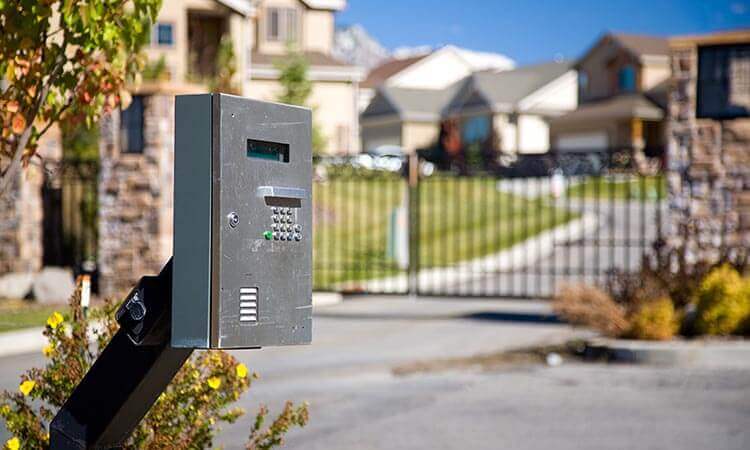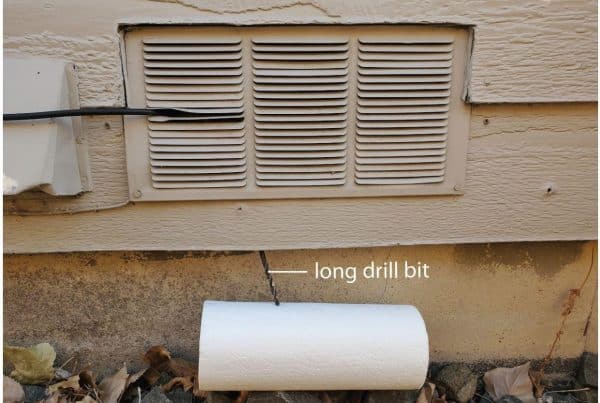A driveway alarm is a smart choice for your next home improvement project, as it offers enhanced security to help keep your home and family safe. However, you may not know how to choose the right one for your property. Here are nine features to narrow your selection and help you pick the best alarm.
1. The Type of Alarm
Driveway alarms include sensors to detect the presence of objects near your driveway. The alarm may be able to detect when a person or large animal approaches your driveway, triggering some type of warning.
The alarms are categorized based on the type of sensor. The most common options include passive infrared (PIR) sensors, active infrared (AIR) sensors, and magnetic probes.
PIR sensors are the most common option and provide the greatest coverage. A PIR sensor relies on infrared signals to detect the presence of heat. People, animals, and cars radiate heat, allowing the PIR sensor to detect their presence.
AIR alarms require a transmitter and a receiver. The transmitter transmits an infrared beam to the receiver. If anything crosses the path and blocks the beam, the alarm is triggered.
A magnetic probe is designed to detect the presence of metal, such as a vehicle. The probe is buried near the driveway and triggers the alarm when metal pulls on the magnet. Magnetic probes are less likely to trigger false alarms as they rely on the presence of metal.
2. The Power Source
You can choose between wired and wireless driveway alarms. Wired alarms are connected to an electric outlet, which requires placement near your home.
Wireless alarms include solar-powered and battery-powered designs. A battery-powered alarm can be placed anywhere but requires you to occasionally replace a battery.
Solar-powered alarms obtain power from the sun and may charge an internal battery to remain powered through the night. A solar-powered driveway alarm needs to be positioned in an area where it can receive sunlight throughout the day.
3. Transmission Range
Most alarms include some type of receiver to let you know when an object approaches your driveway. The alarm wirelessly transmits a signal to the receiver. The transmission range determines how far you can place the receiver from the alarm.
Most sensors include a transmission range of 500 feet to 1000 feet. However, some of the cheaper models may include a shorter range, limiting your placement options.
4. Smart Technology
You can find driveway alarms equipped with smart technology. These alarms often include Wi-Fi connectivity and the ability to send notifications. The notifications may be sent via email, text, or a mobile app.
Some alarms also integrate with other smart technologies and devices. You may be able to integrate your alarm with other smart systems for greater control of your home.
5. Weatherproof Rating
Driveway alarms are left outdoors 24/7, which means that they need to withstand the elements. Look for driveway alarms that are rated for use in the rain. Some models include waterproof ratings or weatherproof features for use in areas that get a lot of rainstorms and snow.
6. Ease of Installation
Driveway alarms with PIR sensors are typically easier to install compared to AIR sensors and magnetic probes. You can place the alarm just about anywhere, depending on the power source.
AIR sensors require you to align the transmitter and receiver. The two devices need a clear line of sight to establish a barrier. When an object crosses the barrier, the alarm goes off. However, if you place the receiver too far away, the alarm may not work properly.
Installing a magnetic probe involves more work, as you need to bury the probe. You also need to ensure that it is far enough away from the road to avoid false alarms due to passing traffic.
7. Additional Sensors
If you have a long driveway, you may want to use additional sensors to increase the coverage of your driveway alarm. Some devices are not designed to work with additional sensors, while others allow you to purchase more. Each new PIR or AIR sensor increases your coverage area.
8. Placement of the Alarm
You should think about where you plan on placing the alarm before purchasing. The length of your driveway and the distance to your home may impact your buying decision.
For example, you may need to use a PIR sensor or AIR sensor if you have a short driveway, as the magnetic probe can be triggered by nearby traffic. If you have a large property, you may need wireless alarms. A wired alarm may require you to bury a power cord, while a wireless alarm can go anywhere.
9. Price
The price of a driveway alarm can range from $25 to hundreds of dollars. You should set a budget before you start shopping. However, it is important to remember that the cheapest alarms may not offer the best protection. Cheaper alarms may include sensors with less range or lack the features that you need.








